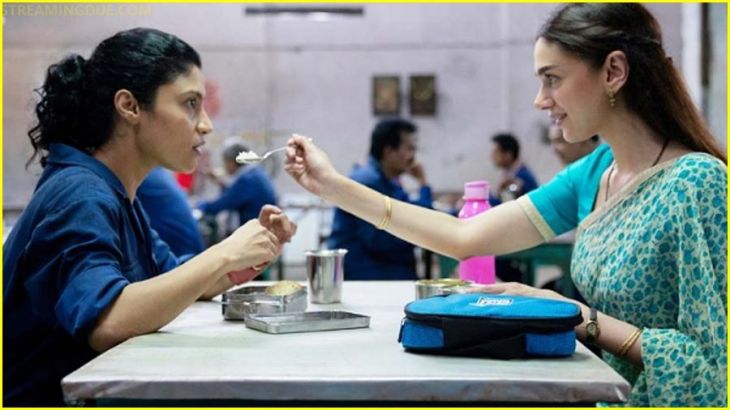
By Panchali Ray
All humans long for intimacy, and some long for solitude in intimacy. Social norms tell us that the pinnacle of human intimacy is reached in adulthood – with sexual-romantic pairing of the heterosexual couple – well entrenched within the institution of marriage and hetero-patriarchal family. This celebration of reproductive hetero-normativity often manifests itself in framed pictures of the conjugal couple and their offspring/s displayed proudly in living rooms, ostentatious celebrations of marriage anniversaries/romantic holidays and photo albums uploaded in social networks sites that blur the thin line between reality and fantasy. One pauses to ask what is being celebrated: togetherness, exclusivity, and a promise of eternal companionship? And what do these markers of conjugal bliss warn us against: loneliness, desolation, and the sheer terror of being alone? While feminists have long been critiquing the institution of marriage, it took a global pandemic to bring out the unequal gendered division of labour, care work and violence entrenched within the family. With the absence of domestic workers, to buffer the inequality between conjugal couples that prevented resentments from spilling over, anti-domestic violence helplines buzzed non-stop and the veneer of the home/family as the bastion of comfort and shelter from the cruel world was ripped away.
It is in this context that I place the film Geeli Pucchi (wet kisses), directed by Neeraj Ghaywan, and the two main protagonists, Bharti Mondal, played by Konkona Sen Sharma and Priya Sharma, played by Aditi Rao Hydari. In a nutshell, it is a story about a Dalit Bengali woman and an upper-caste North Indian woman – their negotiation with the labour market, marriage, reproduction, intimacies, and each other – framed by their privileges, marginalization, queerness, and caste identities. Or, if you prefer, a story about privileges, marginalization, queerness and caste identities and how they operate within intimate spaces and the labour market. Bharati, working as a machine operator (an exclusively masculine occupation) aspires for the position of the accountant, which is offered to Priya, who gets the job on account of her caste-based knowledge-practices. The only two women, in an otherwise exclusively male space, coming from two disparate social locations receive differential treatment that clearly reflects caste and class privileges. The masculinization of Bharati Mondal, in stark contrast to Priya Sharma’s normative femininity, does not draw just from queer stereotypes but also caste and class markers of Bengali society: the chotolok (plebeian) woman, abandoned by her husband, masculinized by her participation in the labour market, devoid of any feminine qualities of nurture, care or empathy. While Priya tries to strike a friendship, based on the shared experience of womanhood, Bharati resists. In a nutshell, that is all geeli pucchi is about: rejection of the everyday comfort of wet kisses, of solidarities, of universal sisterhood.
Bharati’s aspiration, as well as her resistance, strikes a chord. Framed as it is, not by rancour but bewilderment. An acceptance interlaced by hurt. A vulnerability interwoven with resilience. A rejection of empathy, sisterhood, collegiality that emerges from an understanding of her queerness, her Dalit identity and that of a woman located in the margins of reproductive hetero-normativity. She mourns not the loss of her husband and unborn child but her lover, whose memories lend itself to a solitude which is oddly comforting. Priya, located firmly within hetero-patriarchy is never alone – surrounded by a husband, family, and colleagues – and blinded by her privileges, finds in Bharati an outlet for the deep dissatisfaction that so obsessively consumes her. Not the one to question her privileges, Priya plays into caste norms by refusing to acknowledge her friendship with Bharati publicly and instead seeks to transgress in private moments. This could easily have been a story of a dissatisfied wife grabbing moments of happiness in a queer intimacy that threatens caste and class norms and one that would probably end with the durability of the institution of marriage that withstands all attempts of transgression, had it not been the resistance of the lower-caste woman: her refusal to be a distraction, an ‘other’ that buffers the boredom of conjugality and thus sustains it. And this refusal stems from an acute awareness of her caste identity, one that of the ‘pariah’. And, her solitude.
The solitude of Bharati Mondal, in stark contrast to the Priya Sharma’s claustrophobic but normative existence, raises the question of how we can have a free-er relationship with our unfreedoms. Where the dominant reading of Bharati’s emotions and behaviour is that of one who is locked in her own self-interest and narcissism, I read her as one who furls and unfurls, reaches out and recoils, stakes and then unstakes, as she revolts against defensible behaviour. In times of the global pandemic where the unity of the collective, the family and society is celebrated, Bharati reminds us of its dangerous fiction. Lacking the elegance or the cultural legitimacy of a feminist icon or a revolutionary, Mondal is more of a vagabond, unmoored and alone in her pariah status. However, she does not cut a lonely figure; instead, she invites the viewers to contemplate what it means to unhome, to be in exile.
The hyper-connected world we live in where communication takes a fraction of a second, sometimes unthinkingly when overwhelmed by loneliness, only to regret later; a world in which there is an excess of social network apps – Twitter, Facebook, and Instagram – which lulls us into believing that we belong and are part of a collective, a constant need to communicate, to escape oneself as we give into the ache of constant validation. This turn, away from the self, is an annihilation of spaces where we spend time on contemplation and thus an annihilation of criticality, of self-reflection, of being on one’s own. Poet-philosophers have dwelled on solitude as a moment pregnant with possibilities, the ability to contemplate one’s actions, develop conscience and to think of how best to live one’s life. Arendt’s vita contemplativa (contemplative life), where one does not long for companionship or crave camaraderie because one is never truly alone – an ability to reject the cacophony of the world – only to prepare oneself for participation in the public world is the life of Bharati Mondal. Bharati and Priya’s interaction moves from a few fragile moments of togetherness based on their inability to live with hetero-patriarchal norms to one of contenders based on their antagonistic caste positions. Priya’s rejection of Bharati because of caste rules is met by the latter’s manoeuvre to oust the former from labour market competition based on gender norms. Bharati’s rejection of solidarities, whether caste based or on the virtue of her sex, is not a display of an inflated ego but one of an understanding of the workings of the world, of the intersectionality of oppression that has little patience for one dimensional understanding of violence.
For those misfits, whose lives are not nourished by parental or conjugal love, the global pandemic has intensified solitude, and in some cases, claustrophobia. While feminists celebrate collectives as families of choice, and social network is buzzing with sentimental messages of deep longing to see a parent’s face, a desire to lay one’s head on a mother’s lap, and other expressions of inability to deal with enforced isolation, there are many who look around in wonder and in bewilderment. For those living outside this hetero-normative reproductive economy, the pandemic brought home what was almost always home. Isolation, solitude, and the odd comfort of being the relentless ‘outsider’. A return to ‘normalcy’ and an end to lock-down induced isolation do not signal a return to the everyday comfort of familial intimacies. For some of us, the pandemic-enforced solitude is business as usual. As Mahmoud Darwish writes:
What
will we do
without
exile?
Bio:
Panchali Ray is an independent researcher. Email: raypanchali@gmail.com
***
Like Cafe Dissensus on Facebook. Follow Cafe Dissensus on Twitter.
Cafe Dissensus Everyday is the blog of Cafe Dissensus magazine, born in New York City and currently based in India. All materials on the site are protected under Creative Commons License.
***
Read the latest issue of Cafe Dissensus Magazine, “Special commemorative issue: 100 years of Satyajit Ray – the indefinable genius”, edited by Roshni Sengupta, Jagiellonian University Krakow, Poland.
